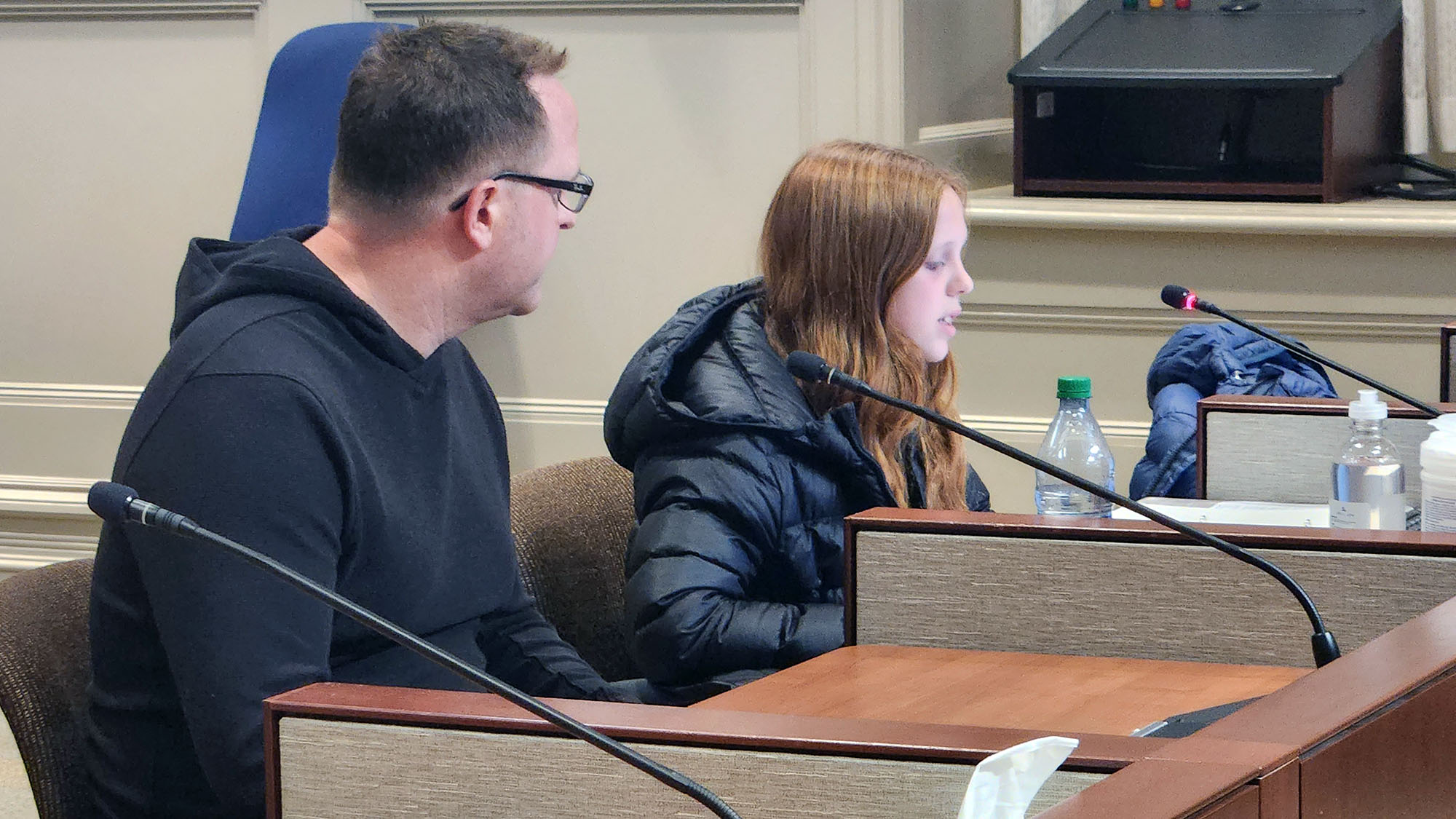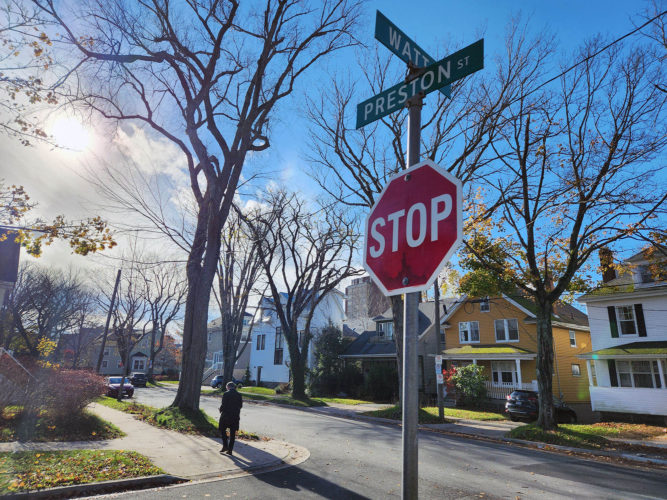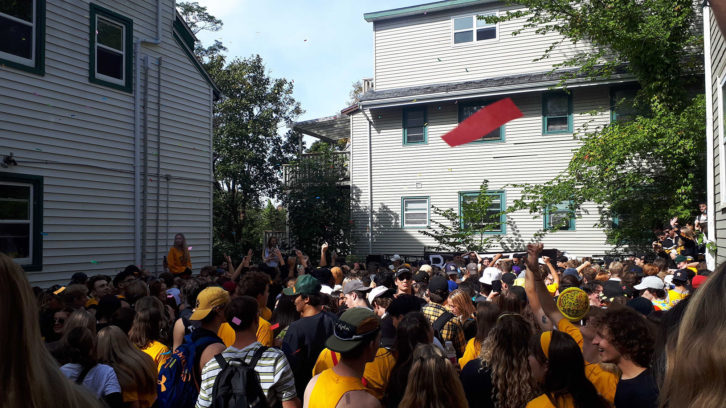Dalhousie neighbour proposes bylaw to curtail illegal street party
Halifax police estimate up to 4,000 people attended Halifax Homecoming in October

caption
Kristian Curran and daughter Charmonix speak to community council about illegal street parties Tuesday evening.A resident who lives near Dalhousie University wants a new bylaw that expands the powers of police and increases the penalties for nuisance parties.
Kristian Curran addressed Halifax and West community council on Tuesday. He said he represents an informal group of 14 households in his neighbourhood.
“We’re here in front of you to express our concern, as residents, over the Halifax homecoming,” Curran said.
Homecoming is an unsanctioned street party that began in 2017 that happens on a weekend near the end of September. The event spans over a neighbourhood near Dalhousie that includes Preston Street, where Curran lives.

caption
Preston Street is in a quiet neighbourhood near Dalhousie University.Between 3,000 and 4,000 people attended the party on Oct. 1, according to Halifax Regional Police. There were several disturbances and injuries, including a stabbing and a fire set in the street to prevent officers from dispersing the crowd.
Curran advocated for a nuisance bylaw like those in Wolfville and Hamilton, Kingston and Waterloo in Ontario. Those bylaws expand enforcement options and penalties to address nuisance parties but vary in their methods.
“The state of our neighbourhood during the parties is one of great fear for our children, families and elderly,” Curran said. “It is a source of community anxiety.”
Curran’s 12-year-old daughter, Charmonix, addressed the community council too.
“I don’t feel safe in my neighbourhood,” Charmonix said. “The police do nothing. They said they can’t stop the music until a formal complaint is made.”
Coun. Waye Mason, who represents District 7 where the homecoming party takes place, said Charmonix’s words were “heartbreaking.”
Coun. Patty Cuttell asked Curran about the efficacy of the bylaws used in his examples. Curran said those bylaws were too recent to be conclusive.
Mason is not convinced that bylaws alone are an effective solution. He said the root cause may be Dalhousie’s drinking restrictions for students.
“What happens is, they can go to their friends’ houses, who are 18 in the neighbourhood, and they can drink there,” Mason said. “All that’s happening is they’re pushing students off campus and out into the community.”
Dalhousie has an alcohol policy that aims to create and maintain “a safe and secure environment in which the consumption of alcohol on campus and at off-campus events does not harm or disrupt the teaching, learning, health, or living environment of members of the University Community.”
Before the party, Dalhousie warned students of consequences for behaviour that violates the Dalhousie code of student conduct or residence community living standards.

caption
Police said between 3,000 and 4,000 people attended Halifax homecoming.The day after the party, the university’s president issued a statement calling the unsanctioned party “unacceptable.”
“To our neighbours, we certainly understand why you are disappointed and angry. Once again, you have been made to feel unsafe in your own home. We stand beside you in our commitment to continue to confront toxic and unsafe party culture,” Deep Saini said in the statement.
In an update, the university said there was a “multi-stakeholder collaborative framework” convened to deal with these street parties.
Mason said council was examining the efficacy of nuisance bylaws in other municipalities. He plans to speak with the Kingston downtown councillor later this week about that city’s bylaw.
Mason suggested revisions to existing Halifax bylaws that would allow police intervention without the necessity of a formal complaint.
“What are the police willing to enforce and what are they resourced to enforce?” Mason said. He said police already have powers to deal with riot conditions.
Cuttell shared some of Mason’s concerns.
“It’s one thing to create a bylaw,” Cuttell said. “It’s another thing to create an effective bylaw.”
“We need to really look at the root cause here,” Cuttell said. “I think a large part of the responsibility lies with Dalhousie.”
Curran told the community council that he was not interested in placing blame but in finding solutions. He said the scale and responsibility has grown beyond Dalhousie’s jurisdiction.
“Our intent was to get this on the radar,” Curran said. “This is perhaps the beginning of the next steps.”
About the author
Jeremy Hull
Jeremy Hull works for CBC. He's published in magazines throughout the Maritimes. He's happiest when writing about jiu-jitsu or fly fishing. Jeremy...
